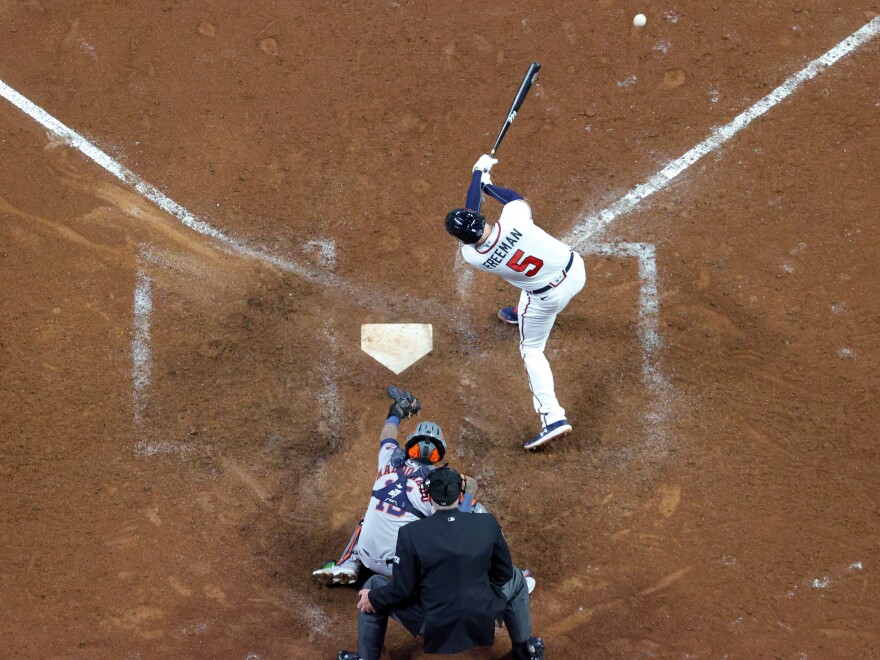Major League Baseball owners and players failed to reach a deal on a new work agreement, triggering a lockout — the owners' version of a strike. It's the first MLB work stoppage since a 1994 strike cut the season short and canceled the World Series.
The agreement expired at 12:59 p.m. Wednesday.
The sides have about two months before spring training to try to resolve their differences over pay structures and other issues. For now, the lockout halts offseason roster trades like free agency signings and some minor player preseason work.
Owners say the players' demands for better pay for younger players would hurt their ability to stay competitive. As , teams have been leaning on younger, cheaper players over whom they have more control. The median salary has dropped about 30% since 2015, .
Many fans won't sympathize with either side, as NPR's Tom Goldman explains, especially after teams spent a reported $1.4 billion on player salaries Wednesday — a one-day record — in a rush to beat the lockout.
Sullivan also cites a new study that accuses the league of using two different baseballs during the 2021 season — without the knowledge of players or teams. Changes in the ball can mean the difference between an outfield fly and a home run, and can have other big impacts on player stats.
The league acknowledged in a statement yesterday that it had used two different balls, blaming production difficulties caused by the pandemic.
This story first appeared in the .
Copyright 2021 NPR. To see more, visit https://www.npr.org.



